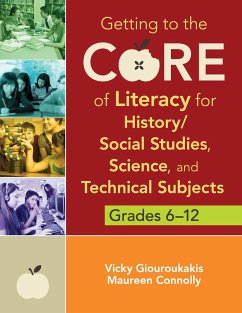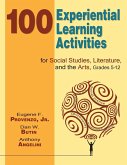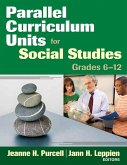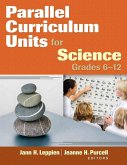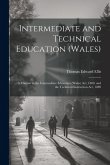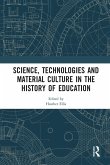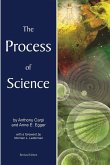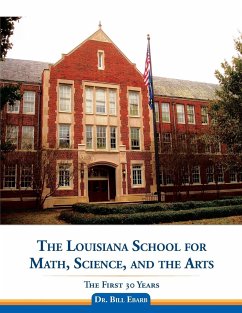Vicky Giouroukakis, Maureen Connolly
Getting to the Core of Literacy for History/Social Studies, Science, and Technical Subjects, Grades 6-12
Vicky Giouroukakis, Maureen Connolly
Getting to the Core of Literacy for History/Social Studies, Science, and Technical Subjects, Grades 6-12
- Broschiertes Buch
- Merkliste
- Auf die Merkliste
- Bewerten Bewerten
- Teilen
- Produkt teilen
- Produkterinnerung
- Produkterinnerung
Literacy-it's not just for English teachers anymore! The new Common Core English Language Arts Standards aren't just for English teachers. Fluent reading and writing are critically important to the study of history/social studies, science, and technical subjects, too. In this practical resource, you'll use teacher-tested, CCSS-based lessons as models-and follow the principles of the Backward Design approach to curriculum development to set and meet your goals. Each lesson template includes The teaching strategies you'll utilize Ways to incorporate technology and media Variations for…mehr
Andere Kunden interessierten sich auch für
![100 Experiential Learning Activities for Social Studies, Literature, and the Arts, Grades 5-12 100 Experiential Learning Activities for Social Studies, Literature, and the Arts, Grades 5-12]() Eugene F. Provenzo Jr.100 Experiential Learning Activities for Social Studies, Literature, and the Arts, Grades 5-1241,99 €
Eugene F. Provenzo Jr.100 Experiential Learning Activities for Social Studies, Literature, and the Arts, Grades 5-1241,99 €![Parallel Curriculum Units for Social Studies, Grades 6-12 Parallel Curriculum Units for Social Studies, Grades 6-12]() Jeanne H. PurcellParallel Curriculum Units for Social Studies, Grades 6-1245,99 €
Jeanne H. PurcellParallel Curriculum Units for Social Studies, Grades 6-1245,99 €![Parallel Curriculum Units for Science, Grades 6-12 Parallel Curriculum Units for Science, Grades 6-12]() Jann H. LeppienParallel Curriculum Units for Science, Grades 6-1245,99 €
Jann H. LeppienParallel Curriculum Units for Science, Grades 6-1245,99 €![Intermediate and Technical Education (Wales) Intermediate and Technical Education (Wales)]() Thomas Edward EllisIntermediate and Technical Education (Wales)21,99 €
Thomas Edward EllisIntermediate and Technical Education (Wales)21,99 €![Science, Technologies and Material Culture in the History of Education Science, Technologies and Material Culture in the History of Education]() Science, Technologies and Material Culture in the History of Education64,99 €
Science, Technologies and Material Culture in the History of Education64,99 €![The Process of Science, Revised Edition The Process of Science, Revised Edition]() Anthony Carpi Anne EggerThe Process of Science, Revised Edition21,99 €
Anthony Carpi Anne EggerThe Process of Science, Revised Edition21,99 €![The Louisiana School for Math, Science, and the Arts The Louisiana School for Math, Science, and the Arts]() Bill EbarbThe Louisiana School for Math, Science, and the Arts63,99 €
Bill EbarbThe Louisiana School for Math, Science, and the Arts63,99 €-
-
-
Literacy-it's not just for English teachers anymore! The new Common Core English Language Arts Standards aren't just for English teachers. Fluent reading and writing are critically important to the study of history/social studies, science, and technical subjects, too. In this practical resource, you'll use teacher-tested, CCSS-based lessons as models-and follow the principles of the Backward Design approach to curriculum development to set and meet your goals. Each lesson template includes The teaching strategies you'll utilize Ways to incorporate technology and media Variations for differentiation and interdisciplinary connections Links to the work of major educational theorists
Hinweis: Dieser Artikel kann nur an eine deutsche Lieferadresse ausgeliefert werden.
Hinweis: Dieser Artikel kann nur an eine deutsche Lieferadresse ausgeliefert werden.
Produktdetails
- Produktdetails
- Verlag: Corwin
- Seitenzahl: 266
- Erscheinungstermin: 14. Mai 2013
- Englisch
- Abmessung: 280mm x 216mm x 14mm
- Gewicht: 678g
- ISBN-13: 9781452255446
- ISBN-10: 145225544X
- Artikelnr.: 37765494
- Herstellerkennzeichnung
- Libri GmbH
- Europaallee 1
- 36244 Bad Hersfeld
- gpsr@libri.de
- Verlag: Corwin
- Seitenzahl: 266
- Erscheinungstermin: 14. Mai 2013
- Englisch
- Abmessung: 280mm x 216mm x 14mm
- Gewicht: 678g
- ISBN-13: 9781452255446
- ISBN-10: 145225544X
- Artikelnr.: 37765494
- Herstellerkennzeichnung
- Libri GmbH
- Europaallee 1
- 36244 Bad Hersfeld
- gpsr@libri.de
Consulting Description Vicky Giouroukakis, PhD, (née Vasiliki Menexas), is an Associate Professor in the Division of Education at Molloy College, Rockville Centre, New York. She teaches graduate courses to prospective and practicing secondary English teachers and English as a Second Language (ESL) teachers. Prior to her tenure at Molloy, Vicky taught English at a public high school in Queens, New York, and ESL to adolescents and adults. She also taught at Manhattanville College and Queens College, CUNY. Her research interests include adolescent literacy, standards and assessment, teacher education, and cultural and linguistic diversity. Her work has been featured in books and scholarly journals, and she frequently presents at regional, national, and international conferences. In 2010, Vicky was the recipient of the Educator of Excellence Award by the New York State English Council and has been serving on the Council's Executive Board since then. She has been interested in standards and assessment and how they affect teaching and learning ever since she began teaching. Moreover, her dissertation work was on the impact of state assessments in English on instructional practice. Vicky received a master's degree in English Education from Teachers College, Columbia University. She also received a master's degree in TESOL and a doctorate in Reading/Writing/Literacy from the University of Pennsylvania. Vicky resides in New York with her supportive husband and three loving children.
Introduction: How to Use This Book
Overview of Chapters
Lesson Format
Lesson Selection
Best Practices
Part I. Reading Standards for Literacy in History/Social Studies, Science,
and Technical Subjects
1. Understanding the CCSS: An Overview
What Are the CCSS for Literacy in the Content Areas?
How Can We Use Backward Design to Create Curriculum that Addresses the CCSS
for Literacy in the Content Areas?
How Do the CCSS for Literacy in the Content Areas and Backwards Design
Relate to the Theories of Dewey, Bloom and Gardner?
2. The Benefits of the CCSS for the Teaching of Reading in the Content
Areas
3. Reading Lessons in History/Social Studies 6-12
Key Ideas and Details
Nationalism: THe Good, the Bad, the Ugly (U.S. History, Grades 6-8)
Craft and Structure
Social Causes of New Imperialism (World History, Grades 9-10)
Integration of Knowledge and Ideas
Vietnam: The Human Face of an Inhumane Time (US History, Grades 11-12)
4. Reading Lessons in Science and Technical Subjects
Key Ideas and Details
Bonus Science Articles (Biology, Grades 11-12)
Craft and Structure
Vocabulary Videos (Computer Apps, Grades 9-10)
Integration of Knowledge and Ideas
Continental Drift (Earth Science, Grades 6-8)
Part II. Writing Standards for Literacy in History/Social Studies, Science,
and Technical Subjects
5. The Benefits of the CCSS for the Teaching of Writing in the Content
Areas
6. Argument Writing Lessons
Social Studies
Mock Trial: Native Americans & European Colonization ( U.S. History, Grades
6-8)
Science
Boyle¿s Law (Chemistry, Grades 9-10)
Technical Subjects
Fantasy Basketball (Sports Marketing, Grades 11-12)
7. Informative/Explanatory Writing Lessons
Technical Subjects
Math in Everyday Life (Math, Grades 6-8)
Science
Earth Day (Earth Science, Grades 9-10)
Social Studies
The Montgomery Bus Boycott (U.S. History, Grades 11-12)
8. Ensuring Success With the CCSS for Literacy in the Content Areas
What are Best Practices for Addressing the CCSS for Literacy in the Content
Areas?
Success Stories Involving Content Area Teachers Working Together
Accessing Support Through Technology
Ten Tips for Getting to the Core of the Common Core for Literacy in the
Content Areas
Conclusion
Overview of Chapters
Lesson Format
Lesson Selection
Best Practices
Part I. Reading Standards for Literacy in History/Social Studies, Science,
and Technical Subjects
1. Understanding the CCSS: An Overview
What Are the CCSS for Literacy in the Content Areas?
How Can We Use Backward Design to Create Curriculum that Addresses the CCSS
for Literacy in the Content Areas?
How Do the CCSS for Literacy in the Content Areas and Backwards Design
Relate to the Theories of Dewey, Bloom and Gardner?
2. The Benefits of the CCSS for the Teaching of Reading in the Content
Areas
3. Reading Lessons in History/Social Studies 6-12
Key Ideas and Details
Nationalism: THe Good, the Bad, the Ugly (U.S. History, Grades 6-8)
Craft and Structure
Social Causes of New Imperialism (World History, Grades 9-10)
Integration of Knowledge and Ideas
Vietnam: The Human Face of an Inhumane Time (US History, Grades 11-12)
4. Reading Lessons in Science and Technical Subjects
Key Ideas and Details
Bonus Science Articles (Biology, Grades 11-12)
Craft and Structure
Vocabulary Videos (Computer Apps, Grades 9-10)
Integration of Knowledge and Ideas
Continental Drift (Earth Science, Grades 6-8)
Part II. Writing Standards for Literacy in History/Social Studies, Science,
and Technical Subjects
5. The Benefits of the CCSS for the Teaching of Writing in the Content
Areas
6. Argument Writing Lessons
Social Studies
Mock Trial: Native Americans & European Colonization ( U.S. History, Grades
6-8)
Science
Boyle¿s Law (Chemistry, Grades 9-10)
Technical Subjects
Fantasy Basketball (Sports Marketing, Grades 11-12)
7. Informative/Explanatory Writing Lessons
Technical Subjects
Math in Everyday Life (Math, Grades 6-8)
Science
Earth Day (Earth Science, Grades 9-10)
Social Studies
The Montgomery Bus Boycott (U.S. History, Grades 11-12)
8. Ensuring Success With the CCSS for Literacy in the Content Areas
What are Best Practices for Addressing the CCSS for Literacy in the Content
Areas?
Success Stories Involving Content Area Teachers Working Together
Accessing Support Through Technology
Ten Tips for Getting to the Core of the Common Core for Literacy in the
Content Areas
Conclusion
Introduction: How to Use This Book
Overview of Chapters
Lesson Format
Lesson Selection
Best Practices
Part I. Reading Standards for Literacy in History/Social Studies, Science,
and Technical Subjects
1. Understanding the CCSS: An Overview
What Are the CCSS for Literacy in the Content Areas?
How Can We Use Backward Design to Create Curriculum that Addresses the CCSS
for Literacy in the Content Areas?
How Do the CCSS for Literacy in the Content Areas and Backwards Design
Relate to the Theories of Dewey, Bloom and Gardner?
2. The Benefits of the CCSS for the Teaching of Reading in the Content
Areas
3. Reading Lessons in History/Social Studies 6-12
Key Ideas and Details
Nationalism: THe Good, the Bad, the Ugly (U.S. History, Grades 6-8)
Craft and Structure
Social Causes of New Imperialism (World History, Grades 9-10)
Integration of Knowledge and Ideas
Vietnam: The Human Face of an Inhumane Time (US History, Grades 11-12)
4. Reading Lessons in Science and Technical Subjects
Key Ideas and Details
Bonus Science Articles (Biology, Grades 11-12)
Craft and Structure
Vocabulary Videos (Computer Apps, Grades 9-10)
Integration of Knowledge and Ideas
Continental Drift (Earth Science, Grades 6-8)
Part II. Writing Standards for Literacy in History/Social Studies, Science,
and Technical Subjects
5. The Benefits of the CCSS for the Teaching of Writing in the Content
Areas
6. Argument Writing Lessons
Social Studies
Mock Trial: Native Americans & European Colonization ( U.S. History, Grades
6-8)
Science
Boyle¿s Law (Chemistry, Grades 9-10)
Technical Subjects
Fantasy Basketball (Sports Marketing, Grades 11-12)
7. Informative/Explanatory Writing Lessons
Technical Subjects
Math in Everyday Life (Math, Grades 6-8)
Science
Earth Day (Earth Science, Grades 9-10)
Social Studies
The Montgomery Bus Boycott (U.S. History, Grades 11-12)
8. Ensuring Success With the CCSS for Literacy in the Content Areas
What are Best Practices for Addressing the CCSS for Literacy in the Content
Areas?
Success Stories Involving Content Area Teachers Working Together
Accessing Support Through Technology
Ten Tips for Getting to the Core of the Common Core for Literacy in the
Content Areas
Conclusion
Overview of Chapters
Lesson Format
Lesson Selection
Best Practices
Part I. Reading Standards for Literacy in History/Social Studies, Science,
and Technical Subjects
1. Understanding the CCSS: An Overview
What Are the CCSS for Literacy in the Content Areas?
How Can We Use Backward Design to Create Curriculum that Addresses the CCSS
for Literacy in the Content Areas?
How Do the CCSS for Literacy in the Content Areas and Backwards Design
Relate to the Theories of Dewey, Bloom and Gardner?
2. The Benefits of the CCSS for the Teaching of Reading in the Content
Areas
3. Reading Lessons in History/Social Studies 6-12
Key Ideas and Details
Nationalism: THe Good, the Bad, the Ugly (U.S. History, Grades 6-8)
Craft and Structure
Social Causes of New Imperialism (World History, Grades 9-10)
Integration of Knowledge and Ideas
Vietnam: The Human Face of an Inhumane Time (US History, Grades 11-12)
4. Reading Lessons in Science and Technical Subjects
Key Ideas and Details
Bonus Science Articles (Biology, Grades 11-12)
Craft and Structure
Vocabulary Videos (Computer Apps, Grades 9-10)
Integration of Knowledge and Ideas
Continental Drift (Earth Science, Grades 6-8)
Part II. Writing Standards for Literacy in History/Social Studies, Science,
and Technical Subjects
5. The Benefits of the CCSS for the Teaching of Writing in the Content
Areas
6. Argument Writing Lessons
Social Studies
Mock Trial: Native Americans & European Colonization ( U.S. History, Grades
6-8)
Science
Boyle¿s Law (Chemistry, Grades 9-10)
Technical Subjects
Fantasy Basketball (Sports Marketing, Grades 11-12)
7. Informative/Explanatory Writing Lessons
Technical Subjects
Math in Everyday Life (Math, Grades 6-8)
Science
Earth Day (Earth Science, Grades 9-10)
Social Studies
The Montgomery Bus Boycott (U.S. History, Grades 11-12)
8. Ensuring Success With the CCSS for Literacy in the Content Areas
What are Best Practices for Addressing the CCSS for Literacy in the Content
Areas?
Success Stories Involving Content Area Teachers Working Together
Accessing Support Through Technology
Ten Tips for Getting to the Core of the Common Core for Literacy in the
Content Areas
Conclusion

